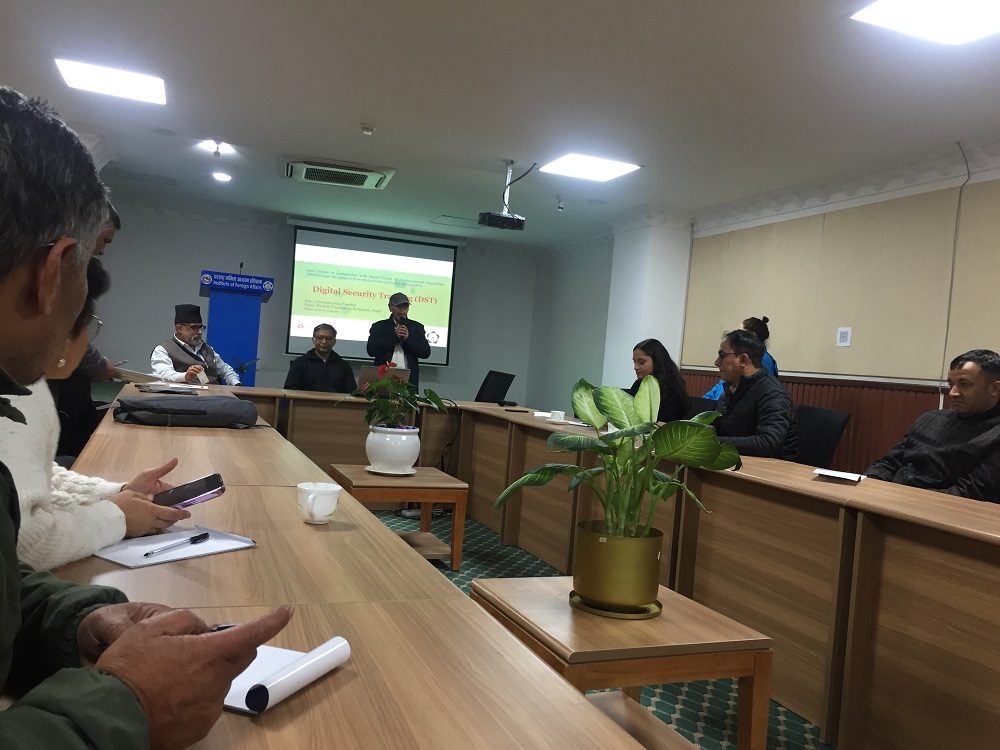Kathmandu
Sanjay Gathia, Program Manager of Asia Centre, emphasized the importance of two-factor authentication (2FA) as a critical digital security measure, particularly in the context of social media, to reduce potential threats.
Speaking at a program organized by Asia Centre in collaboration with the Nepal Forum of Environmental Journalists (NEFEJ) and the Institute of Foreign Affairs on Tuesday, Gathia highlighted the growing risks associated with the increasing number of digital media users. He stated that with the rise in digital media users, security risks have become a significant concern. Two-factor authentication is one of the key strategies users can adopt to enhance their digital safety. Since social media is not entirely secure for sharing information, being cautious about what we share and using 2FA can help protect users to a great extent.
Two-factor authentication is a security mechanism that requires two forms of identification to access an account—typically a known password or PIN combined with a verification code sent to a user’s device, generated by an app, or verified through biometric scans such as fingerprints. This additional security layer makes it harder for unauthorized individuals to gain access.
The program, held at the Institute of Foreign Affairs, was led by Sanjay Gathia, Executive Director of the Institute of Foreign Affairs Prakash Subedi, and Chandra Shankar Sharma. It aimed to raise awareness among participants about digital threats and preventive measures.
Gathia also noted that organizations handling sensitive information, including government agencies, NGOs, and media houses, are prime targets for digital hackers. He added that the Asia-Pacific region is among the most affected areas globally in terms of digital threats. For large organizations, Gathia recommended using advanced tools like Google’s Advanced Protection Program and Project Shield to safeguard systems from cyberattacks.
Citing a recent example, Executive Director Subedi recounted a digital security breach at Nepal’s Department of Passport. The attack disrupted the department’s software system, rendering online passport applications and related services inaccessible.
The one-day program included participants from various sectors, including journalists, researchers, and government representatives. The training aimed to enhance stakeholders’ understanding of digital security and equip them with strategies to mitigate cyber risks.


